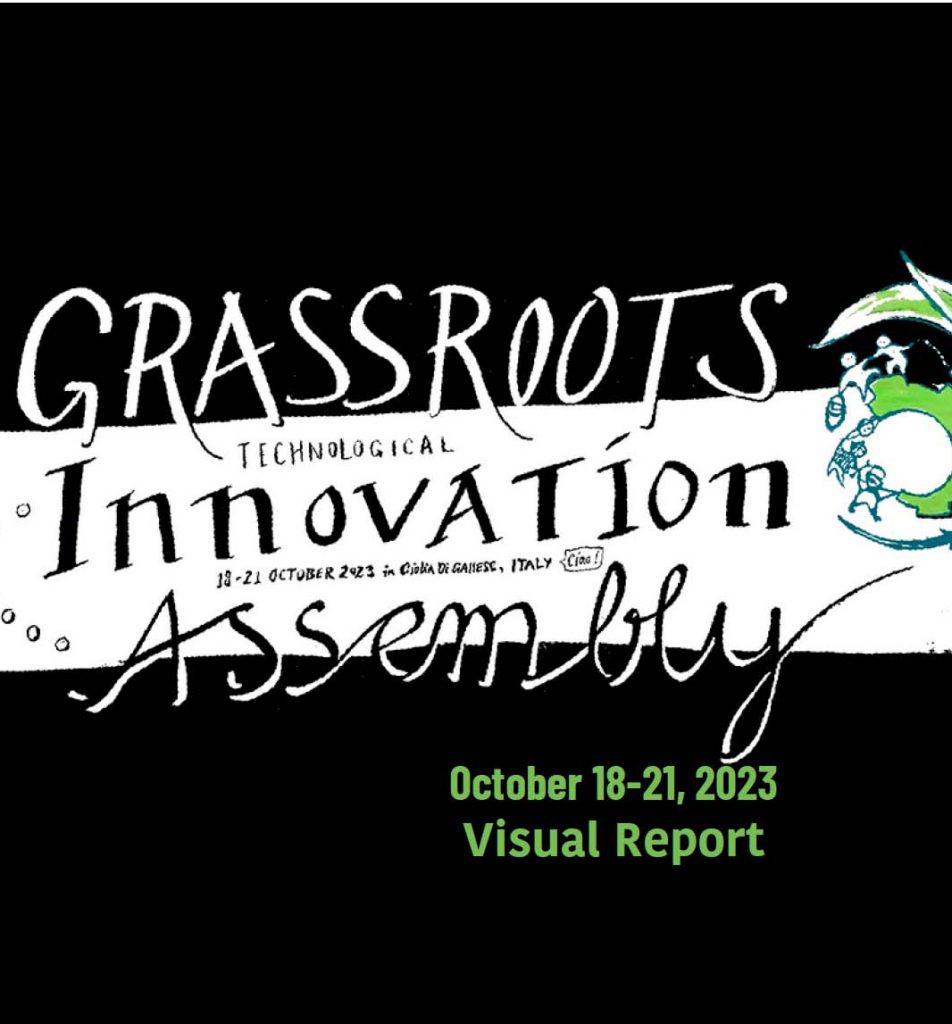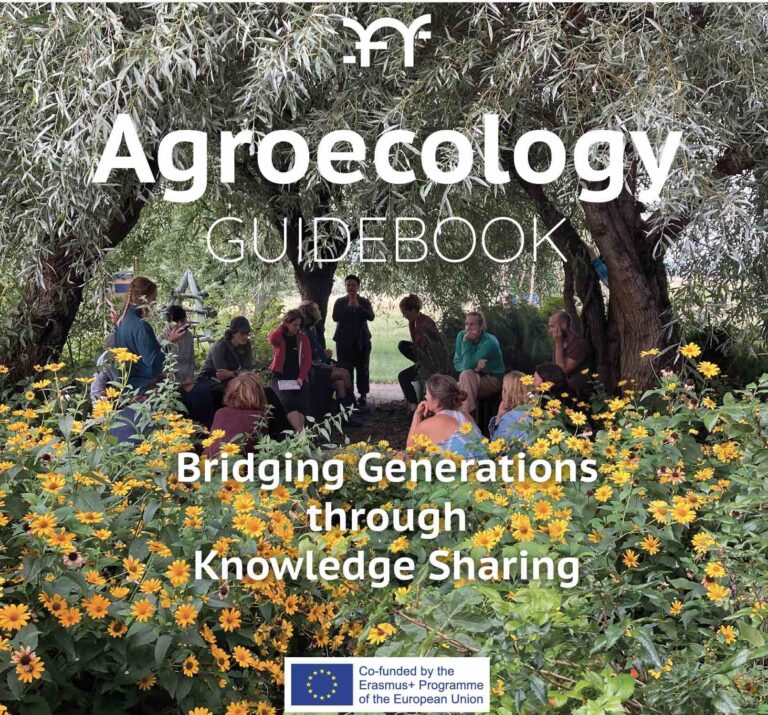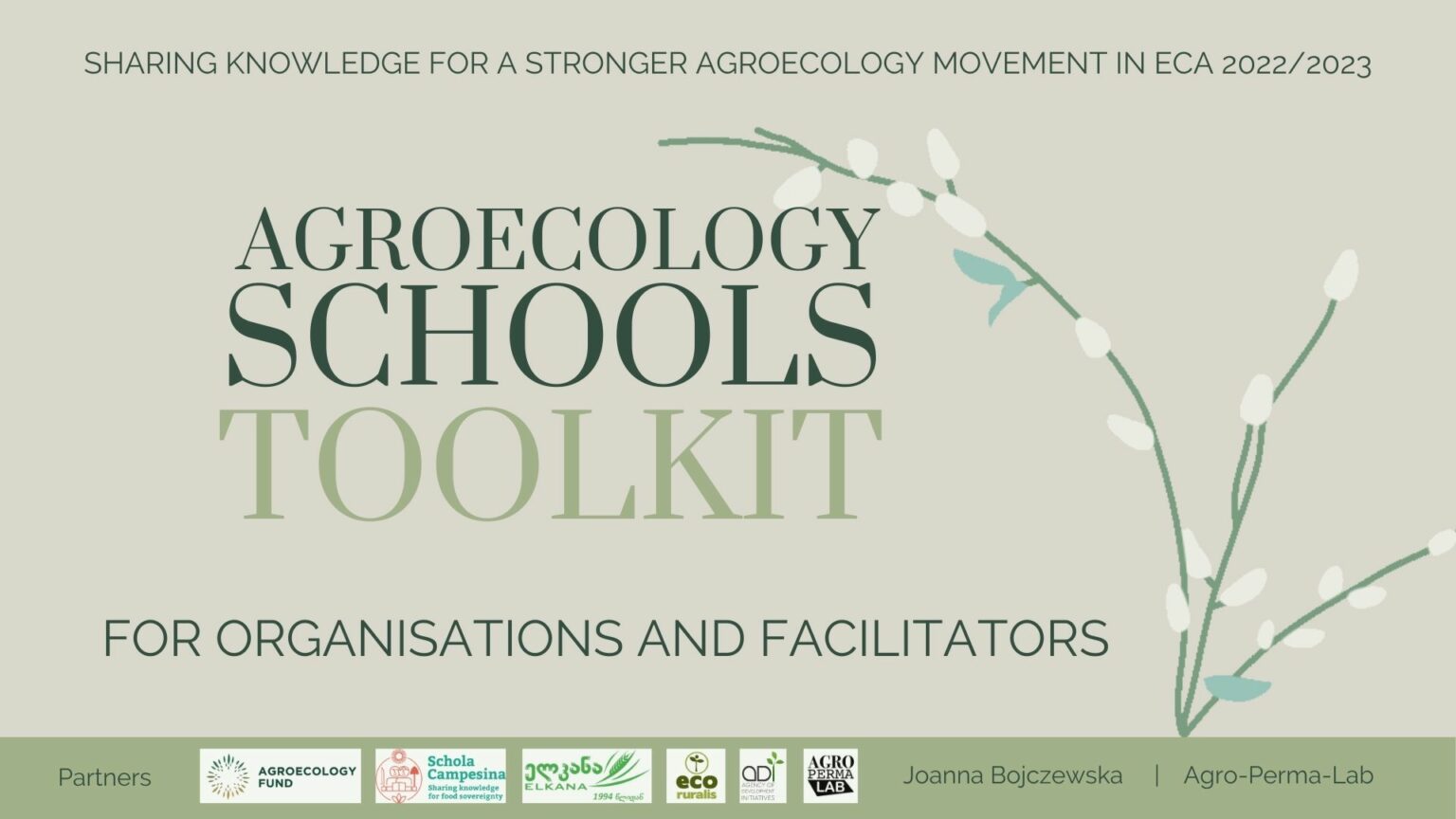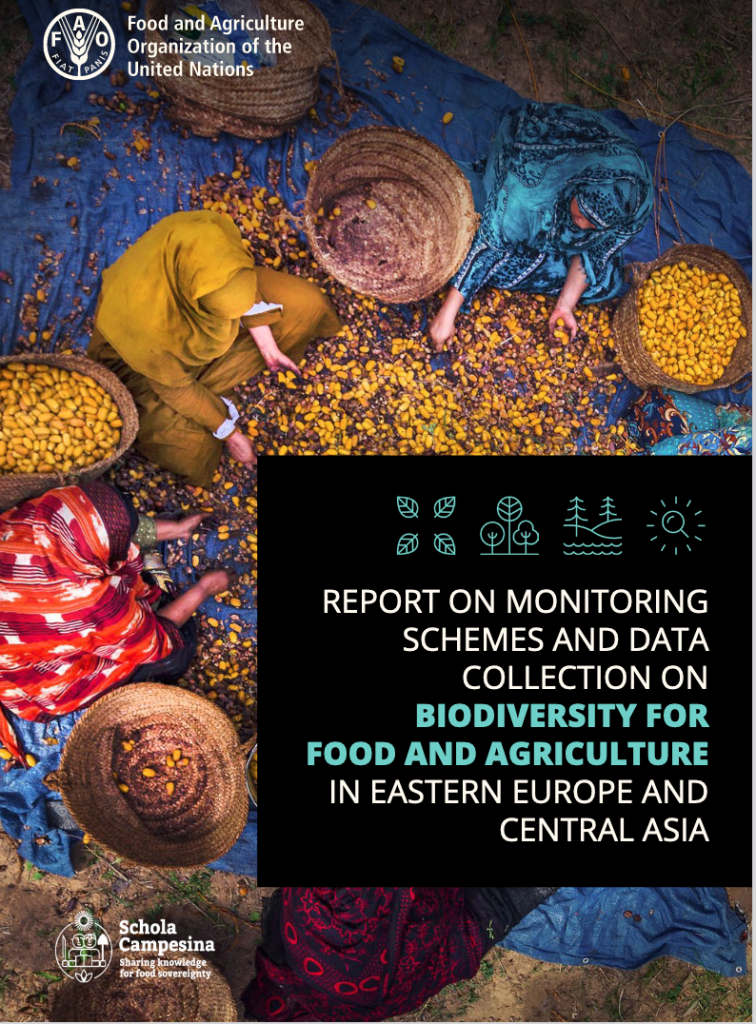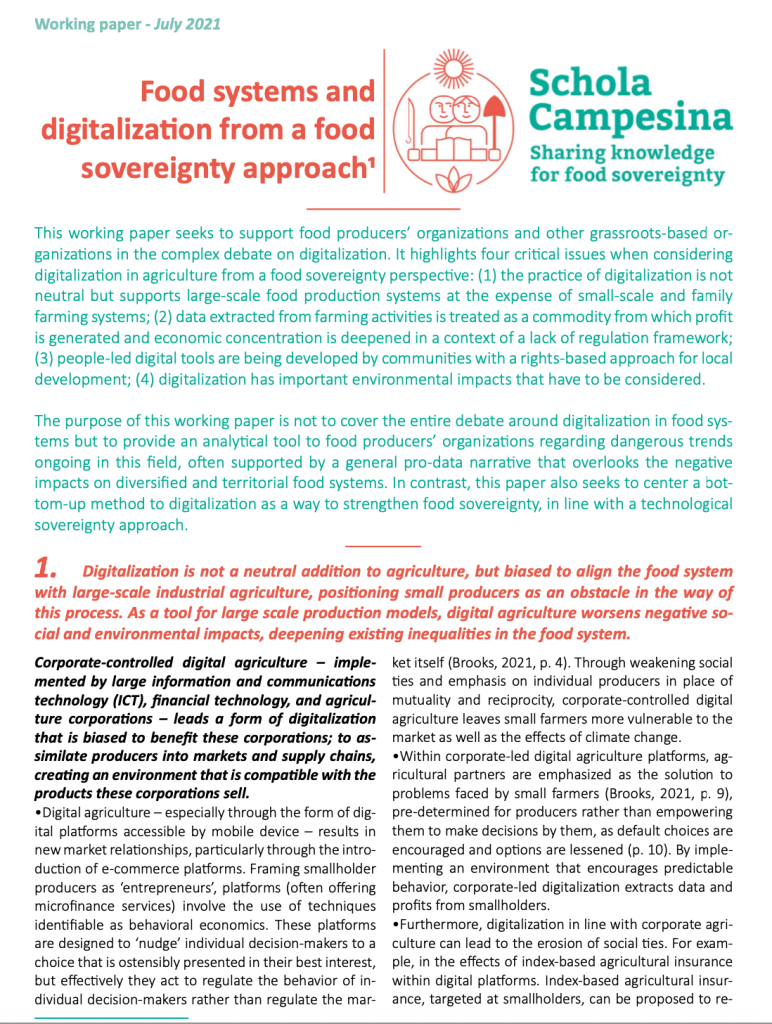Schola Campesina is an international Agroecology school, based in an italian biodistrict, seeking to strengthen food producers’ organizations worldwide in their struggle for Food sovereignty and Agroecology. Through knowledge sharing processes (trainings, videos, webinars), we seek to facilitate the understanding of – and actions within- the global governance of food and agriculture (Rome process). Based on Nyéléni International Forum for Agroecology (2015) and on the principles of Dialogo de saberes and Popular Education; Schola Campesina seeks to develop the dialogue among peasant, academical and activist knowledge.
Recent publications
The Grassroot Innovation for Agroecology Assembly 2023 Visual Report.
This report documents the first international gathering of the Grassroots Innovations for Agroecology Assembly held from Oct 18-21, 2023 in Gallese, Italy. As food producers confront climate crises, corporate capture, and the new extractive technologies of AG 4.0, smallholders are organizing their own innovation networks for agroecological methods. The work of these networks demonstrates that peasant autonomy is possible through grassroots innovation, knowledge-sharing, research, and collaboration.
The idea for the international grassroots innovations assembly was seeded by a group of established innovation networks like Farm Hack, L’Atelier Paysan, and Schola Campesina. Download the report
Agroecology Guidebook
÷The BAG – Bridging Generations in Agroecology project, funded by the European Union and spanning from 2020 to 2023, addresses the pressing challenges faced by rural communities in Europe, particularly the obstacles related to knowledge sharing and co-creation. This publication is the result of collaborative efforts of 6 partners actively engaged in the field of agroecology, as part of their involvement in the project: ZIARNO (Poland), HNEE (Germany), Toekomstboeren (the Netherlands), InterAfogs (France), Swiss School of Byodinamics, and Schola Campesina.
The Agroecology Schools Toolkit
The Agroecology Schools Toolkit is part of a continued pedagogical work allowing agroecology schools facilitators to meet, exchange and be trained on content and methodology. It also aims at supporting young organisations in starting their own agroecology schools. Through horizontal knowledge-sharing organisations expand leadership, expertise and tools across community research, education and political work to promote agroecology at the international, national and regional levels.
Download the Toolkit
Latest News

Webinar. From Farm to Server? The EU data governance framework and what it means for farmers in Europe. 7 March 2024
Webinar From Farm to Server? The EU data governance framework and what it means for farmers in Europe 7 March 2024, 15:00 – 16:30 CET
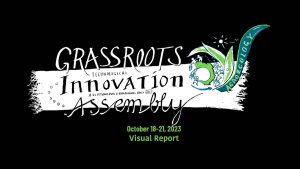
The Grassroot Innovation for Agroecology Assembly Visual Report, 2023.
This report documents the first international gathering of the Grassroots Innovations Assembly from Oct 18-21 in Gallese, Italy. As food producers confront climate crises, corporate
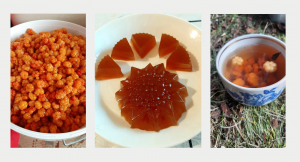
BILIM stories
See here in PDF a compilation of Stories from Bilim agroecology alliance in Europe and Central Asia. Agroecology and interconnectedness of things (Tadjikistan). An interview
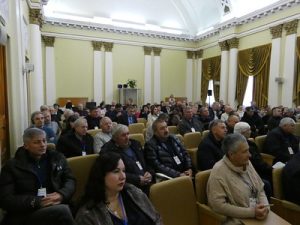
International Forum on Peasants Rights in Ukraine 2024. Results
On 12 December 2023, Kyiv hosted under difficult war conditions the International Forum for the Protection of Peasants’ Rights “SMALL PRODUCERS ON THE GUARD of
BILIM - Agroecology alliance
in Europe and Central Asia region
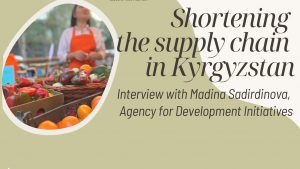
Shortening the Supply chain in Kyrgyzstan
“This is our idea in practice – giving full information to urban consumers and at the same time supporting small-scale farmers” – says Madina Sadirdinova
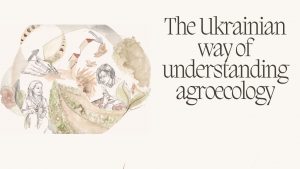
The Ukranian way to understand agroecology
“A good thing is that Ukrainian farmers became more visible, they are recognized and became heroes together with our soldiers. (…) No matter what, pandemia,
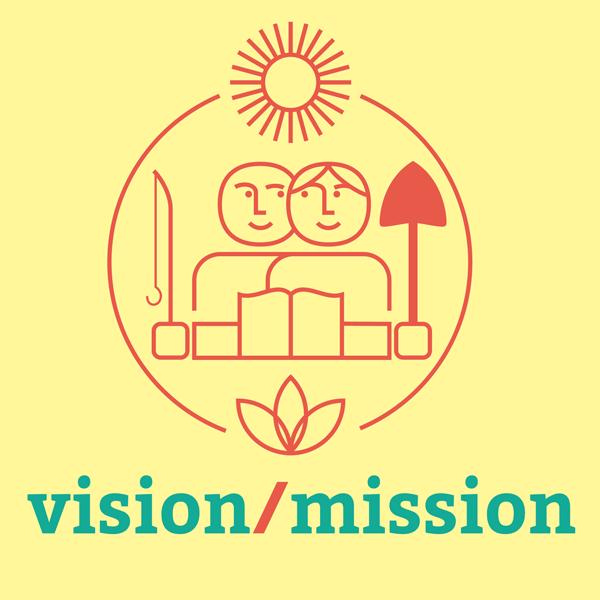
There are 1.5 billion peasant farmers and food producers in the world (the largest sector in the world) and they represent a pillar of economic democracy. Indeed, small-scale food producers make food and agriculture the unique sector of the economy which is not dominated by oligopolies (Internet is in the hands of 10 companies, the world energy market is possibly in the hands of 20, and most economic sectors are experiencing unprecedented concentration). Despite the large number of concentration processes currently ongoing, food and agriculture represents the only sector where there are still 1.5 billion food producers. Hence, a rights-based social and economic model built on a strong sector of food producers, peasant farmers, small-scale fishers and pastoralists, and not on the arrogant force of a few.

